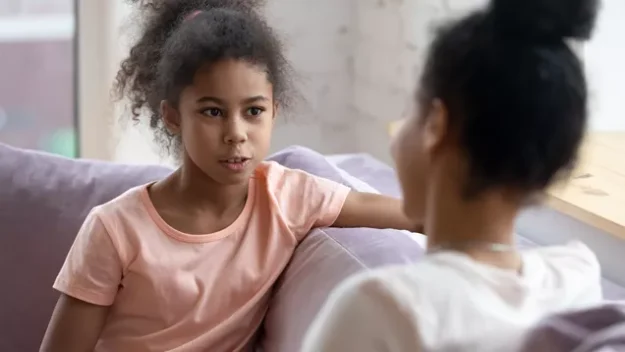Attachment and Trauma
What is attachment theory?
Babies and children need a secure emotional relationship with a main caregiver, usually a mother or father, in order to grow and develop physically, emotionally, and intellectually. Babies and children need to feel safe, protected and nurtured by their caregivers so that they can gradually make sense of the world around them.
This secure relationship with a main caregiver is essential for the child’s development.
Sometimes this early relationship is missing, absent or broken for periods of time, perhaps because:
- There is a traumatic event that affects a child’s continuity of experience.
- The caregiver cannot meet the child’s needs, for whatever reason.

The baby or child’s attachment needs are not met, which leads to difficulties socially, behaviourally or emotionally, and these difficulties may impact on the child’s learning and development. These are called attachment difficulties.
This can affect the executive functioning skills, which control:
- Behaviour inhibition
- Emotional control
- Self organisation
- Planning
- Initiation
- Working-memory
- Self-evaluation
Clear strategies to support a child with attachment difficulties
- An open mind and an empathetic approach are the essential for helping these children.
- Accepting that the child has a need they are trying to convey, and this requires patience.
- Having the opportunity to calm down with an adult in a safe environment (“time in” opposed to a “time out”).
- Help the child to understand their emotions through restorative questions.

Our Aims
We aim to promote and support children to demonstrate a high standard of behaviour, as well as promote self-awareness, self-control, and acceptance of responsibility for our own actions.
We strive to create and maintain a positive and safe school climate, where effective learning can take place and all children can grow socially, emotionally and academically, with mutual respect between all members of the school community, for belongings, and for the school environment.
Our practice is based on Psychosocial Theory, influenced by Group Relations thinking, informed by the work of Klein, Winnicott, Bion, Bowlby and Hinshelwood, amongst others. In this way, the model used at ISP School, Battle resembles the Therapeutic Community Approach. The idea at the heart of the therapeutic community model is one of equality between people and of the capacity in each of us to heal each other and to contribute to each other’s development.
Talk to us
Caroline Belchem,
Attachment Co-ordinator
caroline.belchem@ispschools.org.uk
01424 238640
ISP School, Battle
Glengorse Estate
Glengorse
Battle

